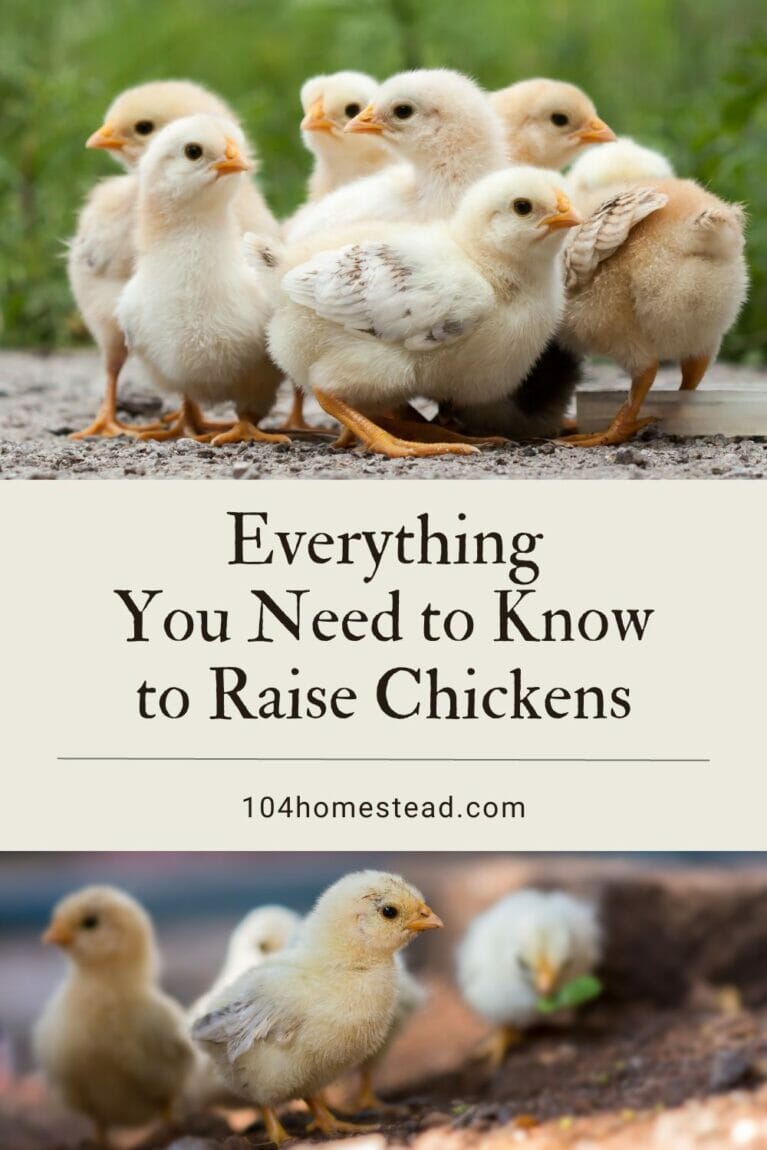How To Care For Laying Hens: A Beginner’s Guide to Everything
A guide to caring for your laying hens. This one article covers everything you need to know to start raising healthy and happy laying hens.
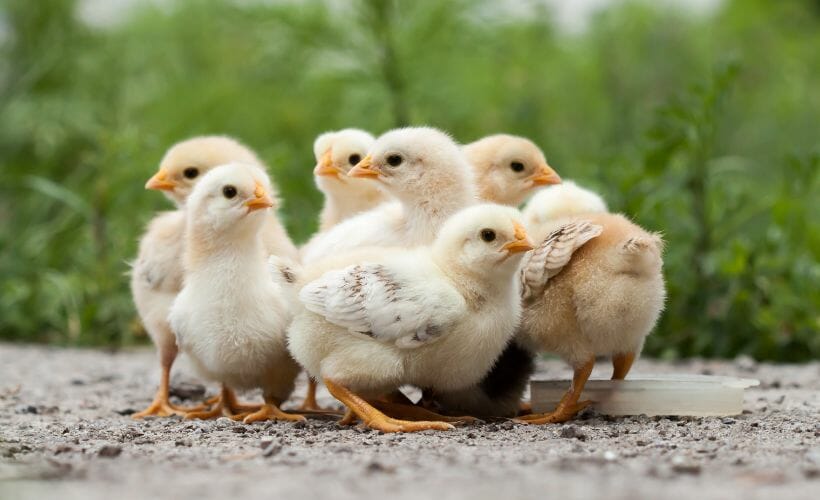
Are you considering raising backyard chickens? Are you filled with questions? Welcome to your one-stop shop for all things you need to know about laying hens. We’ll cover the whole process from raising chicks, to taking care of juveniles, all the way to laying age and incubating eggs so you can start the whole process all over again.
Everything You Could Ever Need to Know About Eggs
If you’re raising laying hens, it’s probably because you want eggs. That’s not to say they don’t make great pets as well, but the fresh eggs certainly make the hard work worth it. Here is just about everything you could need to know about eggs.
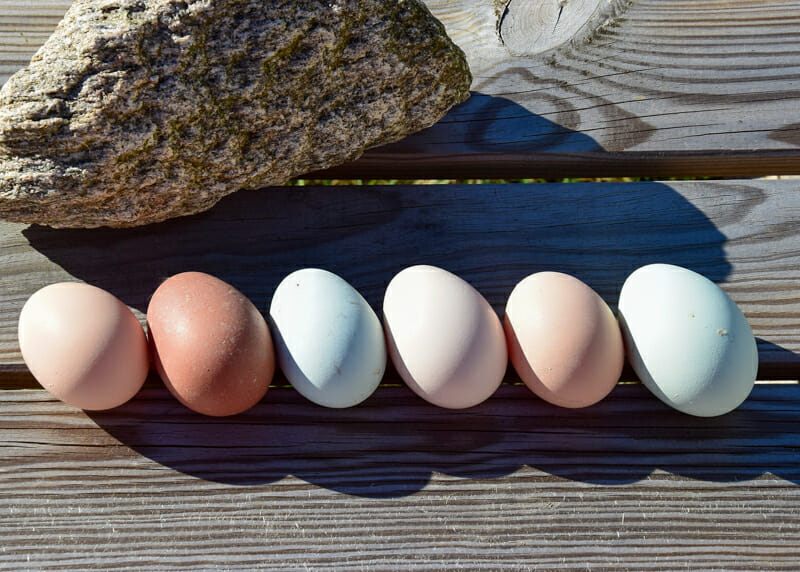
- What you need to know about farm fresh eggs. There’s so much you might not have known!
- What makes eggs a particular color? A nifty little science chat about how chicken eggs get their color.
- Find the 10 best chicken breeds that will have you rolling in eggs. Contains info about their personalities and egg production levels to make sure it’s a good fit.
- Dual-purpose breeds you may want to consider for your homestead. Who says you can’t raise meat and eggs at once?
- An introduction to the blue egg breeds. Do you know what kind of laying hens you have?
- How to mix chicken breeds to create a variety of egg colors, so you can have every color of the rainbow in your basket.
- What’s with the racket my hen makes when she lays an egg? An introduction to the egg song.
- Learn how to handle fresh eggs safely. Psst! It’s not as scary as it sounds.
- Has your laying hen stopped laying? Find out why and what you can do about it.
Everything You Could Need to Know About Raising Chicks
Most beginners start with already hatched chicks, but if you like to walk on the wild side, you can hatch your own! Hatching eggs are often considerably cheaper than purchasing day-old chicks, but it comes with some risks. Let me help you navigate hatching your own laying hens.
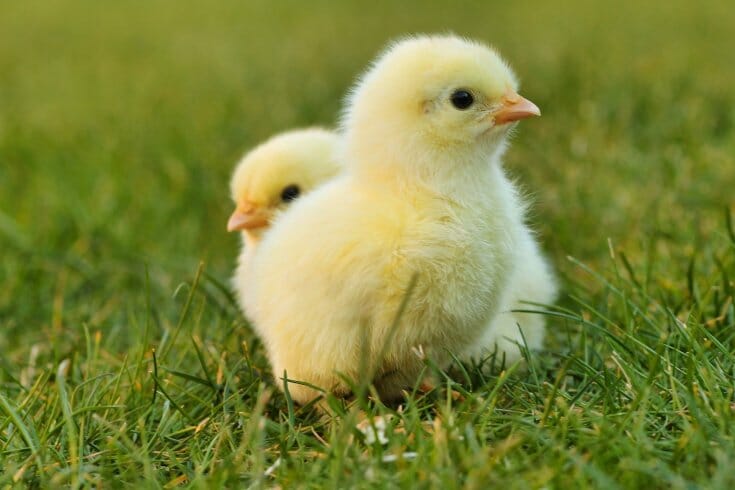
- Are you ready to hatch some chicks? Here’s how to prepare with information on using an incubator or broody hen.
- Which is right for you? A broody hen or an incubator? Let’s weigh the pros and cons of each.
- Save money by making your own incubator. You can use the savings to buy more eggs!
- Locking down the incubator and setting up the brooder. It’s best not to wait until the last minute for this stuff.
- Hatch day and losses. Find out what to expect on the big day and what might go wrong.
- Make a mason jar feeder/waterer hanger because no one likes a dirty dinner.
- What’s a spraddle leg and how do I fix it? (hint: it uses a drinking glass)
- What do chicks eat? Everything that’s typically on a chicken’s menu.
- Starter? Grower? Layer? Multi-Flock? Find out what the heck to feed your chickens and when to do it.
Everything You Could Need to Know About Growing Your Flock
Hatching eggs? Day old chicks? Pullets? Adult layers? Find out the best way to grow your flock, because backyard chickens are like potato chips. You can never have enough.
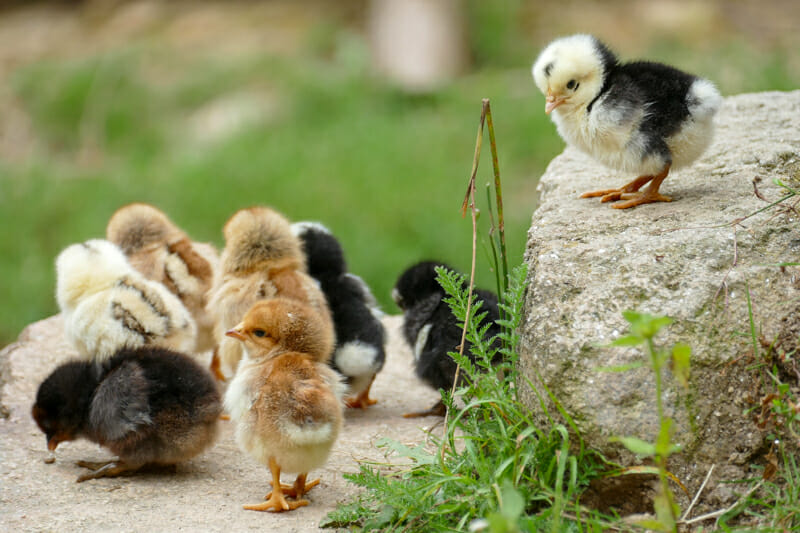
- Why adding started pullets might be the best way to grow your flock. Pullets are like “teenager” chickens.
- Quarantining is one of the most important things you can do for your flock. It can seriously make or break you.
- Are you ready to introduce your new chickens to your old chickens? Get tips for a smooth transition.
- Figure out the breeds of your chicks based on their comb and feathers. This will wow your friends in the poultry forums.
- Want a bird of a different feather? Why not a frizzle or a sizzle? They’ll have the whole neighborhood talking.
- Can I sneak in some ducks or quail with my chickens? Let’s talk about multi-flock housing and what you need to know if you’re going to do it.
- Sometimes roosters are aggressive (they don’t need to be), but you need them if you want to grow your flock without buying new birds.
Everything You Could Need to Know About Keeping Laying Hens Happy & Healthy
Chickens are great starter livestock because they pretty much take care of themselves. There are still things you can do to keep them happy and healthy though. Delicious eggs come from happy hens.
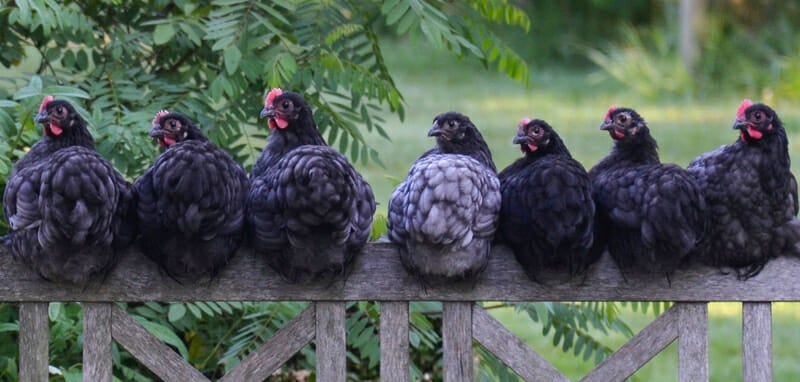
- Enrichment and why it’s important to your flock. (scroll past goats to see the part about laying hens)
- Signs of calcium deficiencies in your flock and how to fix them.
- Learn how to clip wings to prevent your chickens from flying the coop.
- Why oyster shells are on the shelf in the chicken aisle and why your hens need them.
- Natural chicken remedies include herbs, essential oils, and other holistic options.
- A more science-y look at raising chickens for production with charts and graphs and other fun stuff.
- Do chickens get colds? Well, yes and no — let me explain…
- Where exactly do you plan to put your free-range chickens in the winter (because… so much snow)
- The scoop on poop and using sand as a coop bedding.
- Why feather picking happens and how to prevent and treat an injury from it.
- Signs of parasites and what you can do about them. How to deal with creepy crawlies inside and out.
- The end of the road. What happens when your laying hen stops laying for good?
- Heat can cause serious stress in laying hens. Here are some tips to keep them cool.
How to Build the Perfect Chicken Coop
You can certainly learn as you go, but it’s easier to get things right the first time without trial and error.
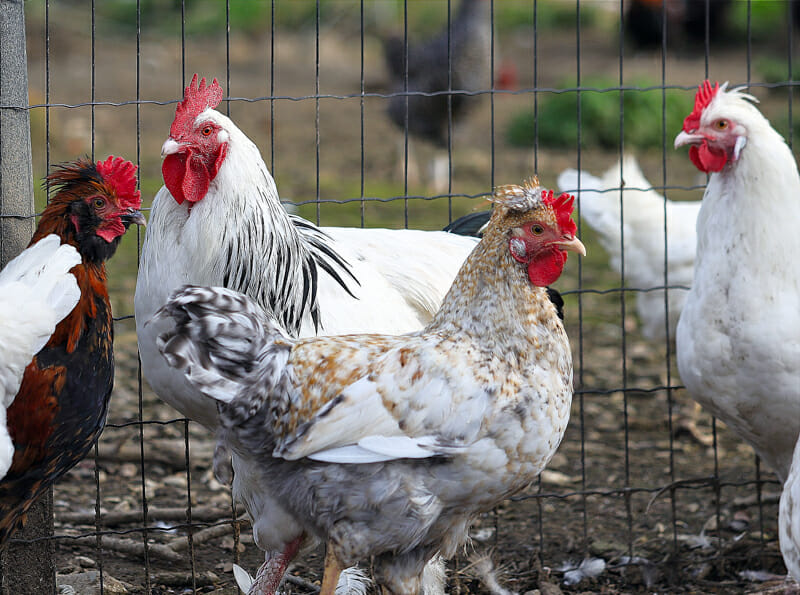
- Design the perfect coop right from the get-go.
- The big list of chicken-safe plants, so you can landscape without posing a danger to them. No guarantees they won’t eat it though!
- Dust bath ideas for clean and happy chickens.
- Every chicken needs a nest box to lay eggs in. You can make one for little or nothing.
- What makes a good perch? And how can I make one?
- How to add supplemental light to your coop with ease using an automatic timer.
Products We Use with our Laying Hens That Get My Seal of Approval
Food Fun
My chickens love fresh cabbage, but my husband hates when I use his drill press to drill through it to hang it. If you haven’t done that, I suggest you don’t. It’s really messy. These Chick-N-Veggie Balls are a really awesome alternative to a drill press for hanging up fresh fruits and veggies. You can also leave them on the ground and watch the chickens play a little game of soccer with them. It’s super fun to watch. Almost as fun as watching them play keep-away with cherry tomatoes. There is a smaller 3″ veggie ball on the market, but I found the smaller one was a pain to open and close. This one is a lot easier to use. We hang ours using a bungee cord attached to the rafters and hooked to the O-ring at the end of the chain that comes with the ball.
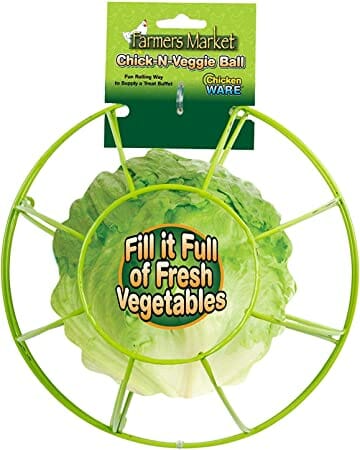
The Perfect Candler
If you’re incubating eggs, you’re going to want to candle them. Not only does candling make sure you don’t have rotten egg explosions, but it’s also just plain fun to see what’s going on in that egg. We used a cheap mini flashlight we got at a convenience store for years. I didn’t feel I was missing out by not having an official candler. If you’re on a budget, stick to a flashlight with LED bulbs. If you’re looking for something extra and you’ve got the funds, the Magicfly Bright Cool LED Light Egg Candler is pretty nifty. It’s cooler in temperature than a flashlight, so you don’t have to rush in an attempt to keep the eggs from heating up. It’s also bright enough to see detail in dark eggs.
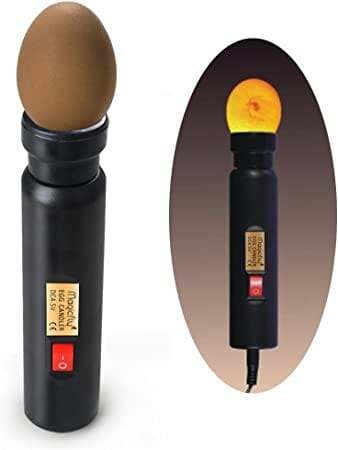
A Cleaner Nest Box
We use to use pine shavings or hay dropped by the goats for our nest boxes, but someone suggested using nest pads and I’m glad they did. The eggs are cleaner and they don’t break, even if there is a scuffle in the nest box. You’ll come to realize that every hen wants to lay in the same box and that leads to these scuffles. We have some patient ladies that will wait patiently for their turn for the coveted nest box, but others will bully their way in. It’s very frustrating to find eggs broken. It’s also a real pain to clean up the mess when that happens. If an egg breaks on a nest pad, you can just pull out the whole pad and hose it down. The first set we got was a plastic set that resembled one of those nubby welcome mats. I wasn’t a huge fan of those and the chickens weren’t either. I much prefer the Precision Pet Excelsior Nesting Pads. We replace them quarterly because they don’t hold up for a lot longer than that.
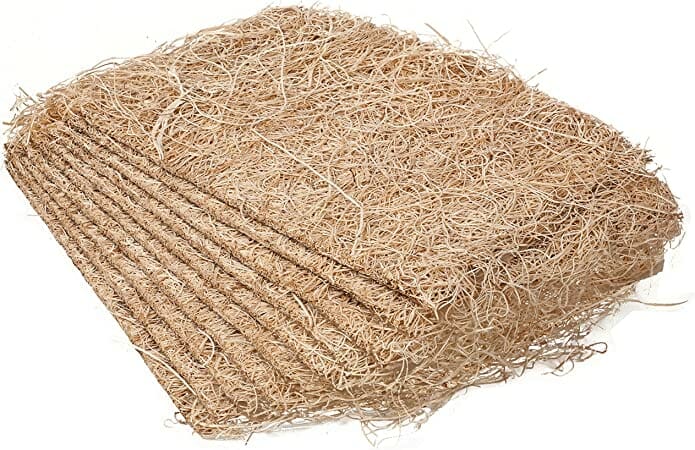
Predator Protection for Laying Hens
Predators happen. I don’t care where you live. Our small-scale homestead is on a busy road just outside of town. Streetlights flood most of our property. We still had a fox this year and we’ve dealt with raccoons in the past. I highly recommend reading the article above that talks about keeping your backyard chickens safe from predators. In addition to the tips you find there, these PredatorGuard Solar Powered Predator Deterrent Lights are a huge help. They have non-solar ones, but it’s nice to not have to run extension cords all over the place. Just this past year we attached two to our chicken tractor. That allowed us to move the birds anywhere in the yard we wanted to without fear of Mr. Fox nabbing them. They can also be used in the garden which is pretty handy when you are dealing with nighttime marauders.
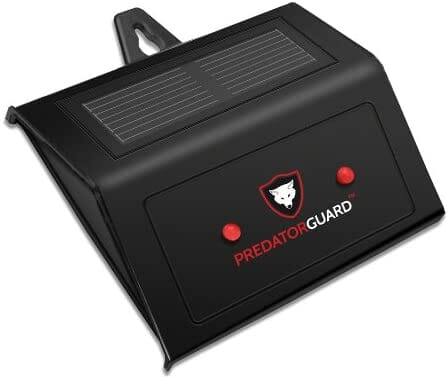
The Water Fountain That Changed Everything
Providing our hens with fresh water was an uphill battle. The little gravity fountains work fine for small flocks or chicks, but if you have a larger flock, you’ll discover they’re constantly scratching litter into the water container. I discovered this hanging waterer that has nipple cups. The nipples work well for some chickens, but I discovered some of mine had trouble grasping how it works. The ones with the cups are more idiot-proof. The cups automatically fill thanks to float valves.
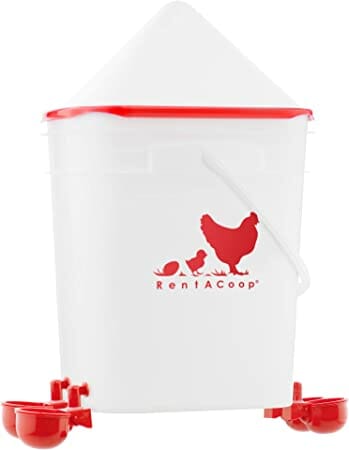
My Favorite Feed
I’m a MannaPro girl inside and out when it comes to feeding all of our livestock, not just the laying hens. Organic isn’t cheap. I’m not going to say it is. MannaPro offers one of the cheaper organic options, but we still do more to cut our costs. We ferment our feed, grow fodder, and compost in the chicken run. Both of these things help to cut the cost so we can afford to feed organic feeds. Eggs from hens raised on MannaPro often have stronger shells and the poop stink it’s as bad as it’s been when we’ve tried other brands. Yes, that is something important to consider. You don’t want to hold your nose every time you go into the coop. They offer layer pellets as well as starter crumbles but shop around. Amazon isn’t always the best deal.
If you’ve found value in this blog post and enjoyed reading it, why not share it with your Pinterest community? Pin the image below and spread the love!
